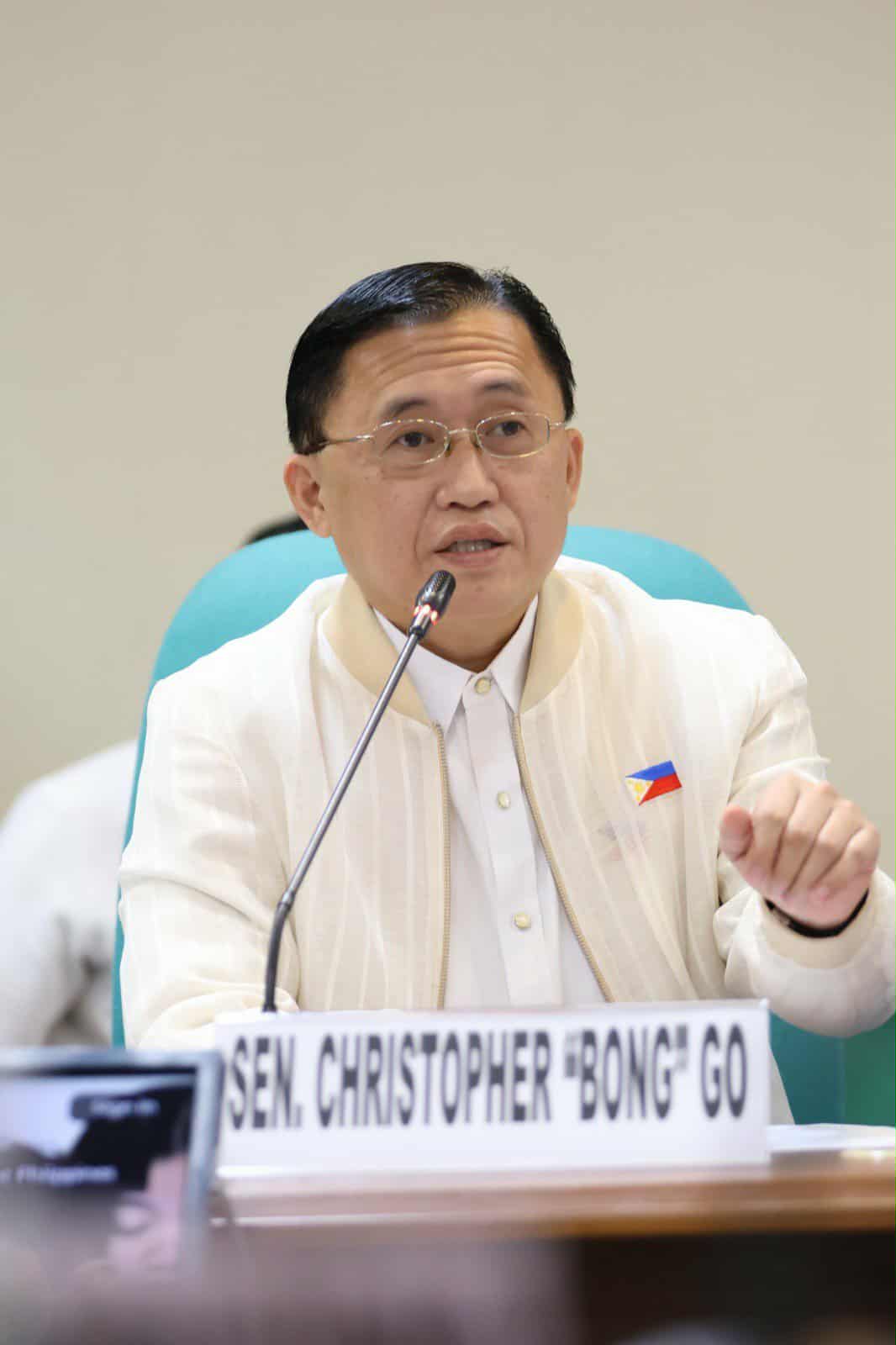Senator Christopher “Bong” Go took a firm stand against the use of unprogrammed funds during the budget hearing of the Department of Finance (DOF) on Tuesday, October 14, at the Senate. Go warned that these funds are vulnerable to misuse and corruption, stressing that once billions of pesos in public funds are placed under unprogrammed appropriations, both Congress and the public lose control of checks and balances over how the money is spent.
“Hindi na natin kontrolado saan napupunta ‘yun (unprogrammed funds). At nagiging source na po ng corruption at ginagawa pong gatasan ng iilan,” declared Go.
Go first raised the issue when he pointed out that unprogrammed appropriations (UA) can be used for projects that are not clearly itemized in the national budget, making it difficult to monitor how the funds are actually spent. He also expressed concern over how excess revenue collections are pooled and later released for UA without congressional scrutiny. “‘Pag nandiyan na ang excess collection, kayo po ang nagko-collect, tapos pagdating sa unprogrammed funds, hindi na natin alam kung saan napupunta,” he said.
The senator also cited the case of the PhP 60 billion excess funds from the Philippine Health Insurance Corporation (PhilHealth) that were swept into the National Treasury and then used for unprogrammed appropriations in 2024. Go reminded that these funds were meant for health services, and should not have been treated as surplus.
“Kaya po ako naniniwala, legally lumusot pero morally unacceptable po sa akin,” he said. “Walang dapat ituring na excess funds sa PhilHealth dahil marami pang Pilipino ang takot magpa-hospital dahil sa kahirapan.”
“Tututukan ko itong PhilHealth para sa Pilipino. Ang PhilHealth ay para sa health. ‘Di po negosyo ‘yan, ‘di po dapat palaguin ang pondo niyan, dapat gamitin sa taumbayan, ibalik po dahil pera po nila ‘yan,” he said previously while adding that being a state health insurer, “dapat may masandalan ang mga mahihirap kapag nagkasakit.”
Go also recalled the PhP89.9 billion that was covered by a temporary restraining order from the Supreme Court of the Philippines in 2024, which prevented the complete release of UA allocations. Of this amount, PhP60 billion was returned to the National Treasury, with President Ferdinand Marcos Jr. later ordering its restoration to PhilHealth.
He further emphasized that if PhilHealth had used its funds properly and implemented reforms early on, there would have been no so-called “excess funds” to sweep into the national treasury. “Para sa akin, wala pong excess funds ang PhilHealth. Dapat ginagamit ‘yan para sa kalusugan ng bawat Pilipino,” he said.
Go reiterated his position that if unprogrammed appropriations are to exist at all, they must be clearly specified and tightly scrutinized for transparency. “Kung meron man po ang unprogrammed funds, dapat klaro kung saan gagamitin,” he explained. “Huwag naman po sana gamitin sa mga proyektong hindi napapakinabangan ng mahihirap nating kababayan.”
Go ended by urging the DOF to ensure that any use of UA is transparent, specific, and aligned with the needs of ordinary Filipinos—not projects that benefit only a few. “Concerned lang po ako sa pera ng gobyerno. Dapat po ‘yun maibalik sa taong bayan at nagagamit po sa tama,” he said.



